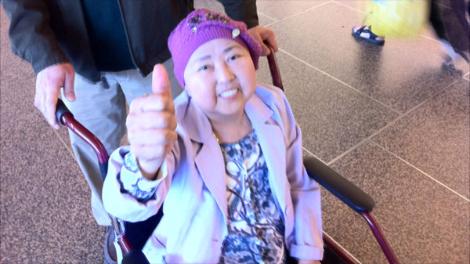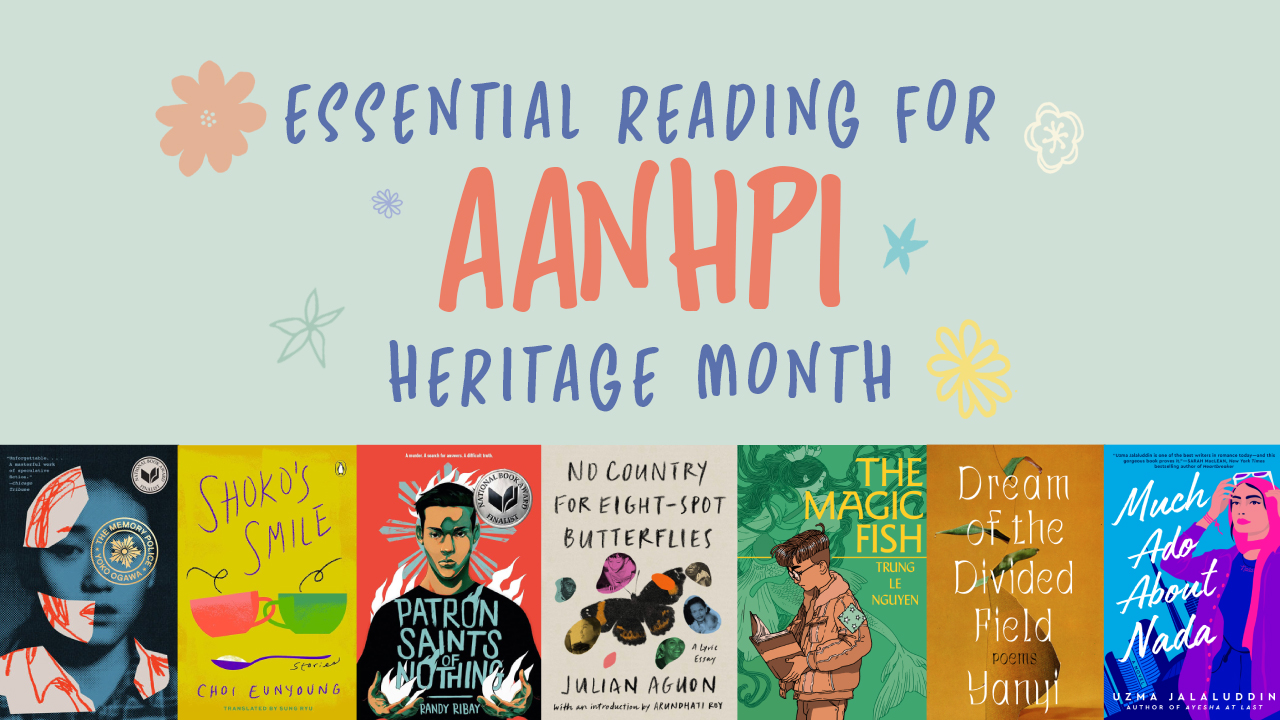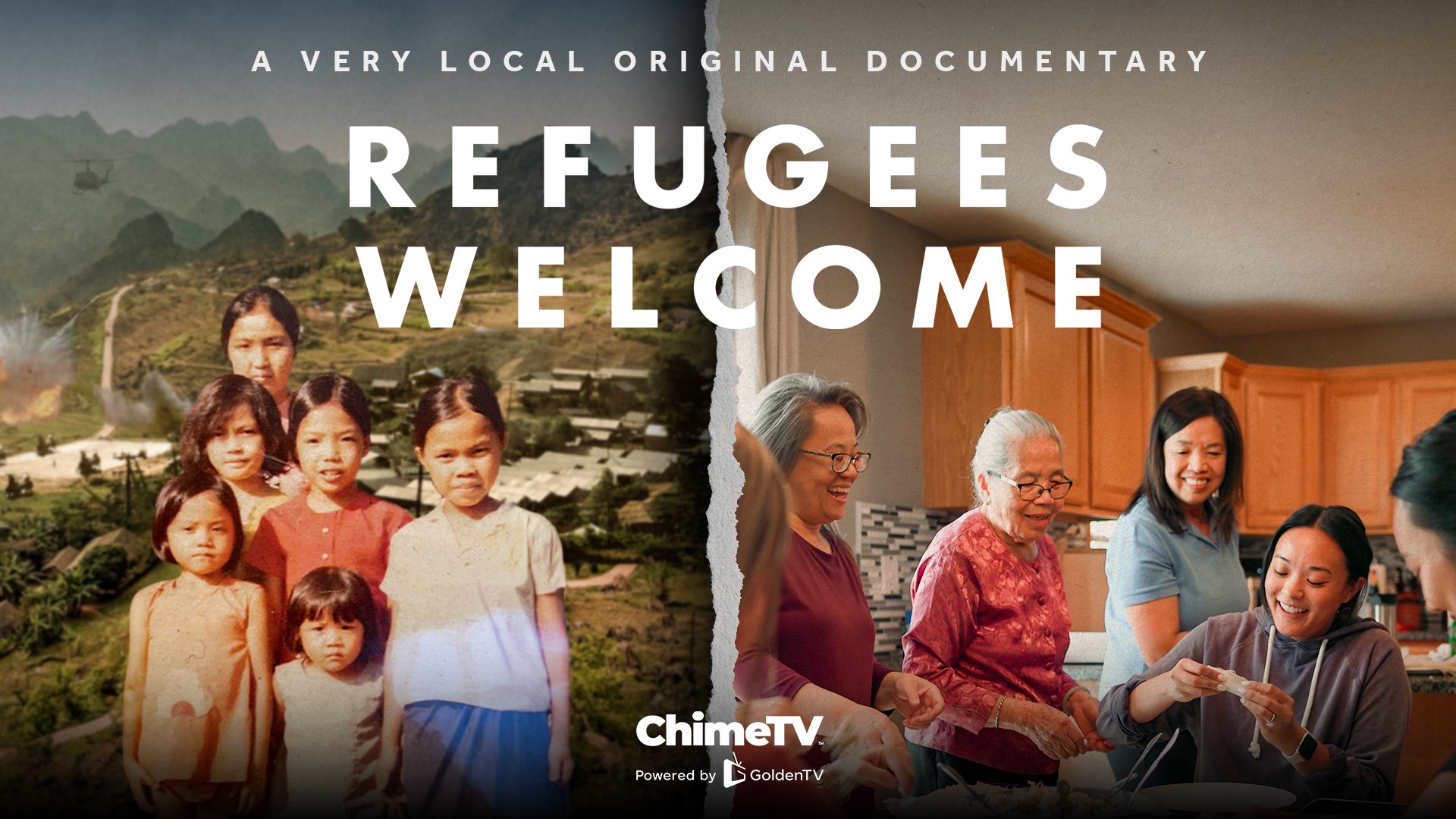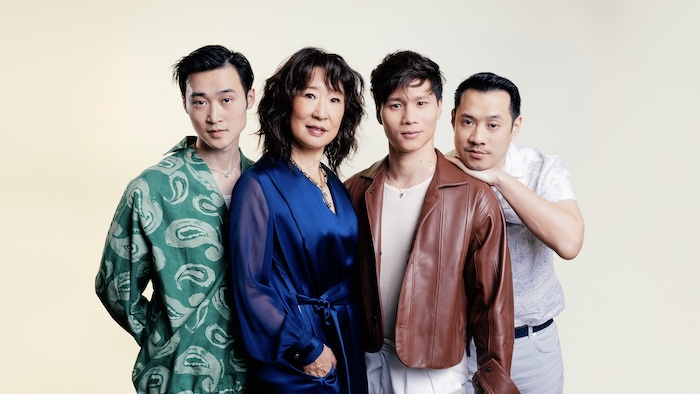
Yungsuhn Park and Hea Ja Park in 2002. Photo By Eric Sueyoshi
Speak Now: A space for reflections on Sa-i-gu
Over the years, KoreAm has documented the impact of the 1992 Los Angeles riots on ours and other communities, and urged an understanding of lessons learned. As we count down to the 20th anniversary next year, charactermedia.com will be running a riot article, image or testimonial in this space every week until April 29, 2012. Some will be taken from our pages, while others will be excavated from our own personal archives. We welcome your submissions—first-person memories (no word limit), pictures, poems and (photographed/scanned) artifacts—for this project, too. Please email them to riots@charactermedia.com. Many of us were mere children in 1992, but 19 years later, we have voices. We can speak now.
The following piece was first published in the April 2002 issue of KoreAm Journal.
The Business of Family: A victim of the Riots is interviewed by her daughter
By Yungsuhn Park
I identify with a generation of youth who witnessed the confusion, destruction and injustice of April 29. In 1992, I was in middle school, too young to understand the complex social and economic issues underlying the cause of the unrest, but not too young to be confused by the media’s highly divisive and racialized news coverage. I went on to study 4-29 in high school and college, interviewing community leaders and writing papers. But all this time, I never stopped to ask my mom, Hea Ja Park, about her experience.
After the events of 4-29 and the death of my father four years later, my mother’s independence and strength shone as she stepped into the role of family leader. After our health food business was looted during the Riots, we worked as a team to keep the family business going. We never considered giving it up or leaving Koreatown. As my mother says, “We just decided to stand back up and rebuild.”
As I take time during my break from school to help develop my mom’s business, it is a good time to remember what happened ten years ago, when my mother’s heart broke. As I prepare for a career in advocating for civil rights, it is a good time to listen to my mother’s reflections on 4-29 and what it means today.
It amazes me how my mother can work endlessly and thrive on it. My brothers and I have always tried to encourage her to work less, but working hard is her way of being successful, instead of merely surviving. This mindset is a part of the immigrant culture that the news media will never completely grasp; that owning a small business for Korean American immigrants is not simply about making money, but as my mom puts it, a “path for us to live.”
I’ve come to accept that her experience and perspective is so different from mine that I may never completely understand. Just as language was a barrier in this interview (conducted in Korean), I realize that our differences will always be there, but that as mother and daughter, we share a bond that is unbreakable.
Yungsuhn Park: What are some of your memories of 4-29?
Hea Ja Park: I remember being at home and just listening to the news and watching TV. They were saying that we had to stay home even though I wanted to go out to the shop and see what was happening. I remember being so scared, nervous, and my heart pounding. Then a person who has a body shop down the street called and told us that our building was on fire. When I heard that, I collapsed. My chest was pounding and I thought that we were ruined and it was over. I thought, there is no path for us to live. [The caller was mistaken; the building did not burn.]
When I finally went out there, everything was broken or gone. The whole place was a wreck, broken glass everywhere. I felt dizzy looking around. But knowing that we were not the only victims and that this happened to the whole community, I calmed down and began to wonder why this happened and why our community was the victim.
YP: How did the events of 4-29 change your life or your outlook on American life?
HP: Right then, we thought about changing our business to something new or somewhere else, but we felt that we just had to stand back up and rebuild our business in the same place.
YP: Did you ever consider leaving Koreatown or moving out of Los Angeles?
HP: No, it never seemed like a choice. Since we are a health food business and dad had the farm [to raise livestock] for our business and our customers were in Los Angeles, we had to do business in L.A. This is where our foundation is. But there were many others that left.
YP: How did you feel emotionally during those days?
HP: Oh, I was just so sad and scared.
YP: You didn’t feel angry at anyone?
HP: I did feel angry, but there was no one to be angry at or to blame. Instead, I began to think, “Why did this happen?” And if something like this happens, it means that everyone — blacks, Hispanics, Koreans — must improve relations between the groups. We must have discriminated against each other, weren’t friendly, and didn’t see each other equally.
YP: So you thought that this caused the Riots?
HP: I don’t know about a cause, but I think that the Koreans who do business, … this is what I think, that the Koreans may have been discriminatory. Was this the case? If they weren’t discriminatory, would this have happened?
YP: Are your thoughts about the cause of the Riots different today than they were in 1992?
HP: What I feel is that people discriminate less, and things have improved. Even I’ve changed the way I think, feel and act when I see others on the street. In the past, I wasn’t like this. Now, I have made up my mind to be friendlier and have less distance between them and me.
YP: I remember going to the peace rally and we ended up in the march that went around Koreatown. What was your experience like during that “demo”?
HP: Well, our community felt that we would have to be strong and unite. Our bodies felt hot with excitement and strength in showing our unity. With this mindset, we marched around Koreatown, and it went by so fast. It was a long distance, but it seemed like it went by in an instant with all those people and the unity in the community. We gave each other strength.
YP: I was in junior high when it happened, so I don’t remember details and didn’t think of it much, but it was always in my memory. I chose to research it in high school and took classes in college where we discussed 4-29, but I haven’t ever really discussed it with you even though you were directly affected by it. Now that you are talking about it, how does it feel?
YP: Well, after not thinking about it for years and now thinking about it, it’s hard to remember details. I just remember how I felt and that’s how I can talk about it.
YP: Is it hard to talk about?
HP: No, not really.
YP: I was in middle school so I can remember, but there are many children who were much younger and can’t remember. For those children who were too young, and for the third- and fourth-generation youth, do you think it’s important for them to hear about this?
HP: Yes, I think it’s important for them to know. This is necessary as a part of education for the youth. Parents made a decision to cross over into this country and labor for a living. It would have been ideal for us to never experience this, if we had the right education about this. But this shouldn’t happen again since it has already happened and is in the past. So although we may not want to think about it, when parents educate their children, I think it’s important for parents to talk about this. We don’t live in a society with only Koreans, and parents work so hard in this life that we need to share our experience and lessons so that this doesn’t happen again. We need to create the moments and opportunities to share these stories.
YP: Our business has recovered and grown stronger in the past ten years. Do you think that race relations among Korean Americans and blacks and Latinos in Koreatown have also been rebuilt?
HP: Well, I don’t travel a lot outside on the streets, since I am always in my business, but it seems that relations have improved.
YP: Well, there is still a lot of room for improvement. I think that right after 4-29, business owners felt that they needed to improve their relations.
HP: Yes, that they have the mindset that they must treat people better, more equally.
YP: Now people will talk about it and remember since it is the ten-year anniversary, but the majority of parents will pass this event without bringing it up with their children.
HP: Yes, there may be parents who are very busy and pass the time without discussing it.
YP: I think that there are parents who don’t want to talk about it. You are very open about it and talk about it if I bring it up, but why do you think all parents don’t feel that way?
HP: More than not wanting to talk about it, I think that in this life, it is difficult to even eat and live. There are parents who aren’t able to pay attention to think about the significance of it and discuss it. They are busy and have difficult lives. They may have forgotten about it or don’t want to think about it, and they have immediate concerns about their daily lives that may be difficult. For those people I can understand how it could be that they don’t end up talking about it.
YP: But is it important to make opportunities to talk about 4-29?
HP: Since so many years have passed, people forget, right?
YP: Yes, since people are forgetting, it is even more important for us to talk about these experiences now. In 20 years, it will really be hard to remember and the children will never know.
HP: Yes, it will be history. And as years go by, people will forget. But we need to create opportunities so that people won’t forget and will have times to remember. This is a good thing. You understand what I’m saying, right?







